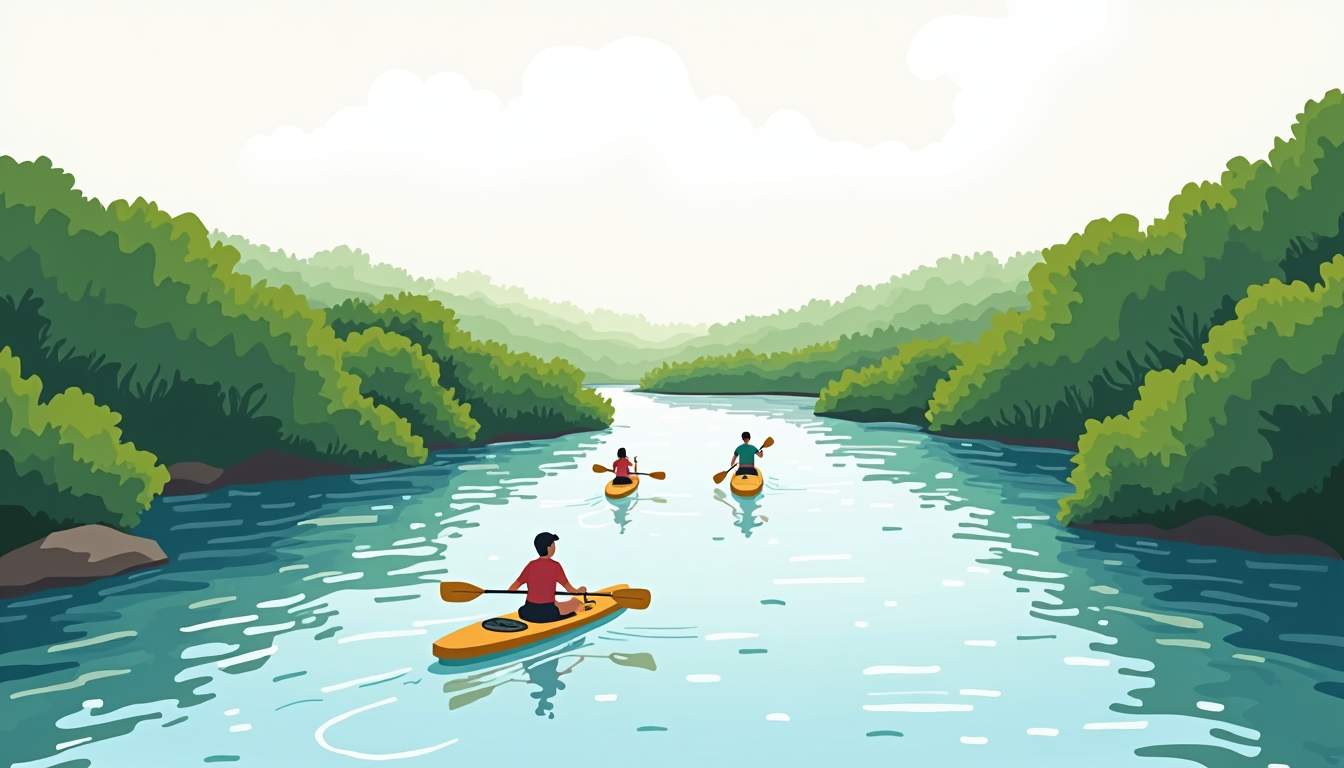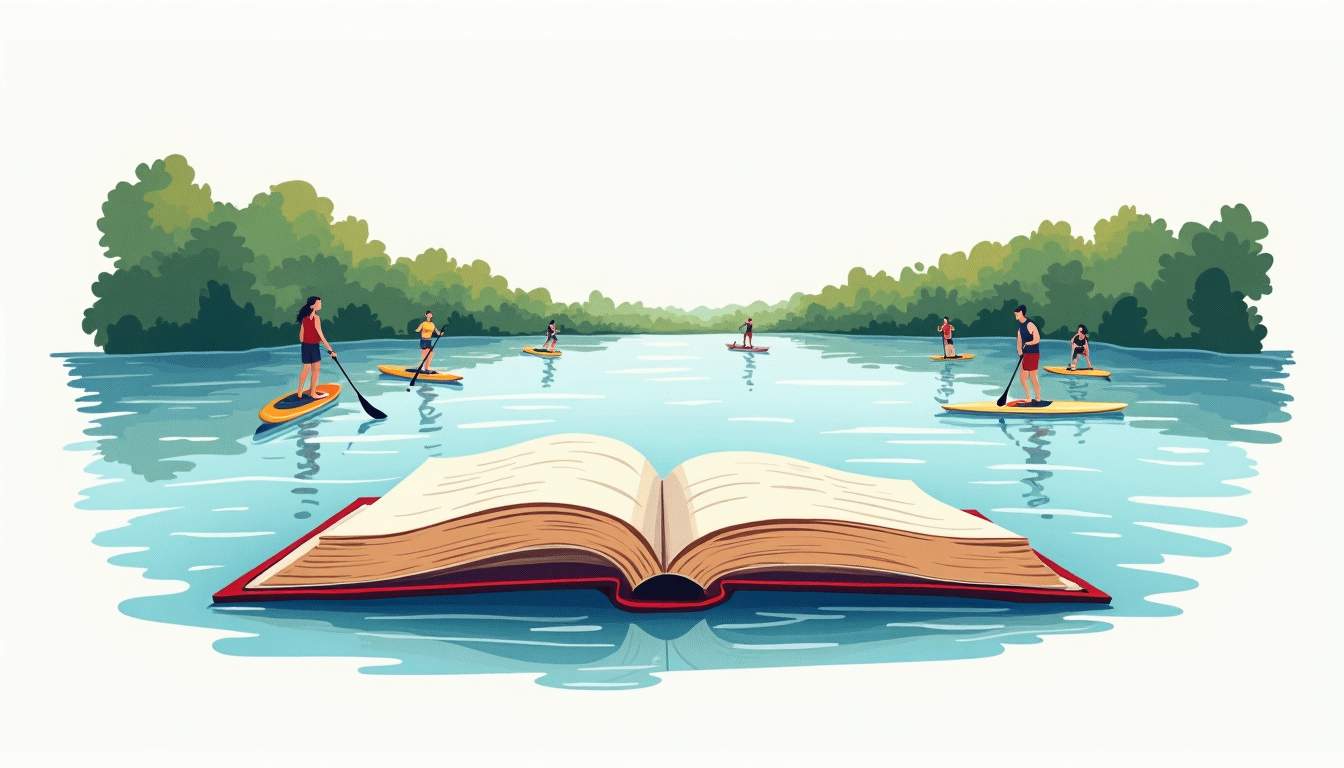
Standing on a paddleboard is more than a sport; it is an invitation to explore Tennessee’s rivers, lakes, and reservoirs with a community that values safety, stewardship, and fun. The Paddleboard Club Community TN brings together paddlers of all skill levels for guided outings, skill clinics, social events, and environmental stewardship projects across the state. This article explains what the group offers, how to get involved, and why Tennessee’s waterways make stand-up paddleboarding (SUP) especially rewarding.
Tennessee’s diverse waterways range from calm lakes and wide slow-moving rivers to scenic backwaters and sheltered bays. These conditions suit both beginners who need gentle water to learn balance and experienced paddlers seeking long scenic routes and occasional waves on windy days. Landscapes along typical paddling routes include pastoral farmland, forested bluffs, and riverfront towns with accessible launch points.

Many paddlers are drawn by the opportunity to see wildlife up close—herons, turtles, beavers, and river otters are common sightings. Paddling also offers an accessible full-body workout that improves balance, core strength, and cardiovascular health without the high-impact stress of other sports. For those who prefer solitude, morning trips deliver calm, glassy water and quiet sunrise views, while evening paddles can be social gatherings with stunning sunset backdrops.
Paddleboard Club Community TN is a volunteer-led organization focused on connecting paddlers, sharing safety knowledge, and organizing regular events. The club maintains a calendar of outings, offers skill-building clinics taught by certified instructors, and coordinates community cleanup efforts to protect Tennessee’s water resources. Membership is open to anyone with an interest in SUP—no prior experience is required.

Safety and inclusivity are core priorities. Events are categorized by difficulty so new paddlers can find beginner-friendly outings, while more advanced trips are posted separately. The club also collaborates with local outfitters and rescue organizations to ensure that leaders hold appropriate certifications and that all group paddles follow established safety protocols.
Weekly paddles: Short, social excursions around local lakes and slow-moving river sections that last 60–90 minutes. These are ideal for newcomers and those who want to paddle more frequently without a large time commitment.
Skill clinics: Focused sessions on stroke mechanics, balance drills, rescue techniques, and reading water conditions. Clinics often include dock-to-water transitions, self-rescue, and assisted rescue practice to increase paddler confidence.
Destination trips: Day or weekend excursions to scenic or remote locations such as Dale Hollow Lake, Center Hill Lake, or sections of the Tennessee River. These trips usually require more planning and may include car-top rigs and shuttle logistics for point-to-point paddles.
Events are posted on the club’s website and social media channels with clear meeting points, launch details, difficulty ratings, and gear suggestions. Registration may be required for some outings, especially destination trips that have limited leader capacity. A trained sweep or safety kayaker often follows the group to assist anyone who needs help or to carry extra gear.
Leaders provide a pre-paddle safety briefing that covers the route, expected hazards, turning points, and communication signals. Common safety measures include wearing a personal flotation device (PFD) at all times, carrying a whistle, and having an easily accessible leash for those on inflatable or hard boards. Members are encouraged to paddle within their limits and to communicate openly about skill level and any concerns.
Stand-up paddleboarding requires minimal gear to get started, but choosing the right equipment improves safety and enjoyment. A stable, wider SUP is recommended for beginners; inflatable boards are a convenient option for storage and transport. Paddles should be lightweight and adjusted to the correct height—typically 6–10 inches above the paddler when standing.
Essential safety gear includes a fitted PFD, leash, whistle, and sun protection. Waterproof dry bags for keys, phones, and emergency supplies are a good investment. For cooler months, quick-dry layers and a splash top are recommended, while summer paddlers should prioritize a hat, UV-protective clothing, and plenty of water. Footwear is optional but water shoes help with rocky launches and shorelines.
Advanced paddlers may invest in specialized boards for touring or racing, carbon paddles for weight savings, and GPS or mapping devices for longer routes. For overnight or multi-day trips, gear organizers and deck rigs allow secure transport of tents, food, and other essentials. Kayak seats and convertible accessories can increase comfort for long-distance paddles.
Progression in SUP is straightforward with structured practice. Foundational skills include stance and balance, basic strokes (forward, reverse, and sweep), turning techniques, and efficient paddling cadence. Regular practice within a supportive group accelerates improvement and builds confidence for longer or more technical routes.
Clinics and private lessons are available through affiliated instructors who emphasize safe technique and rescue skills. Skill-building often includes learning how to handle wind and current, read topography and water flow, and plan routes that match prevailing conditions. Seasonal workshops address things like cold-water immersion and rescue protocols for fall and winter paddles.
Joining a paddleboard community provides a ready-made social network: meeting people who share an outdoor lifestyle, organizing group outings, and participating in local festivals or races. Many members become friends who travel together to paddling destinations or swap tips on gear and techniques. The club also fosters mentorship, pairing more experienced paddlers with newcomers for confidence-building outings.
Beyond socializing, the group engages in environmental stewardship. Many events incorporate shoreline cleanups and educational outreach about non-native species, habitat protection, and responsible paddling practices. These efforts have a measurable impact on local waterways and create a culture of respect for Tennessee’s natural resources.
Safety is reinforced through mandatory pre-paddle briefings for group events, recommended safety checklists shared before every trip, and an emphasis on conservative decision-making. Leaders monitor weather forecasts and water conditions and may cancel or reschedule events if conditions present unnecessary risk. Attendees are encouraged to disclose medical conditions and to carry any required medications.
Environmental responsibility includes leaving no trace, avoiding sensitive wildlife areas during nesting seasons, and minimizing disturbance to shorelines. The club promotes the use of biodegradable cleaning products for board maintenance and discourages single-use plastics at events. Educating members on best practices helps preserve Tennessee’s waterways for future paddlers and wildlife alike.
Joining typically requires filling out a membership form on the club’s website, agreeing to a safety waiver, and selecting communication preferences for event announcements. Membership may be free or supported by a modest annual fee to cover insurance, equipment storage, and event costs. New members receive a welcome packet that explains group norms, skill levels, and recommended local launch sites.
Newcomers can expect friendly support and an organized progression of events designed to build skills. A beginner’s paddle usually includes a short orientation, a warm-up on the dock, and a loop that keeps the group close to shore. Leaders emphasize that falling off is part of the learning curve and that the environment is supportive, not competitive.
Arrive early to check in, inflate gear if using an inflatable board, and meet the leader. Wear layered clothing suitable for the current and expected weather, bring sun protection and water, and secure any loose items. Listen to the safety briefing, choose a spot near others with similar skill levels, and practice calm, steady strokes to build confidence.
Seasonal festivals, full-moon paddles, charity fundraising events, and multi-club meetups highlight the social calendar. Annual gatherings often include demo days where members can test different board shapes and paddle designs, and community races or time-trials for those interested in competition. Environmental events, like river cleanups and invasive species workshops, appeal to members invested in stewardship.
Destination weekends are especially popular, combining paddling with camping, local food, and small-town exploration. These trips provide opportunities to learn navigation and logistics, such as organizing car-toping, shuttles, and overnight gear prioritization for those new to multi-day paddling.
Is SUP safe for beginners? Yes—when basic safety measures are followed. Starting on calm water with a stable board and using a PFD drastically reduces risk. Group paddles with experienced leaders further improve safety.

What if there is no boat access? Many launch points are public parks or boat ramps with easy shore entries. Inflatable boards are a good solution for those with limited vehicle space or lacking roof racks, as they pack down into a carry case that fits in most cars.
Are kids allowed? Family-friendly events welcome children who can follow safety instructions. Age guidelines vary by event; children may need to have basic swimming skills and a properly fitted PFD.
Joining Paddleboard Club Community TN bridges the gap between solo exploration and organized outdoor recreation. Whether seeking fitness, social connection, or a deeper relationship with Tennessee’s waterways, the club offers structured access, skill development, and opportunities for stewardship. New members can start with a beginner’s paddle, attend a skills clinic, or volunteer at a cleanup to get involved quickly.
Check the club’s event calendar, prepare appropriate gear, and plan for a relaxed, supportive introduction to stand-up paddleboarding in Tennessee. The combination of accessible paddling conditions and an enthusiastic community makes this an ideal way to explore the state’s rivers and lakes, meet new people, and contribute to preserving the natural beauty that draws so many to the water.
After exploring Tennessee's waterways with the Paddleboard Club Community TN, elevate your experience by making Tennessee National your home. Enjoy luxury living steps from nature with access to a Greg Norman Signature Golf Course, a private marina, waterfront dining, and over 20 exclusive amenities. Whether you prefer move-in ready homes or custom builds, Tennessee National offers the perfect balance of resort-style comfort and outdoor adventure. Schedule a Private Tour today and start living the vibrant, active lifestyle you deserve.